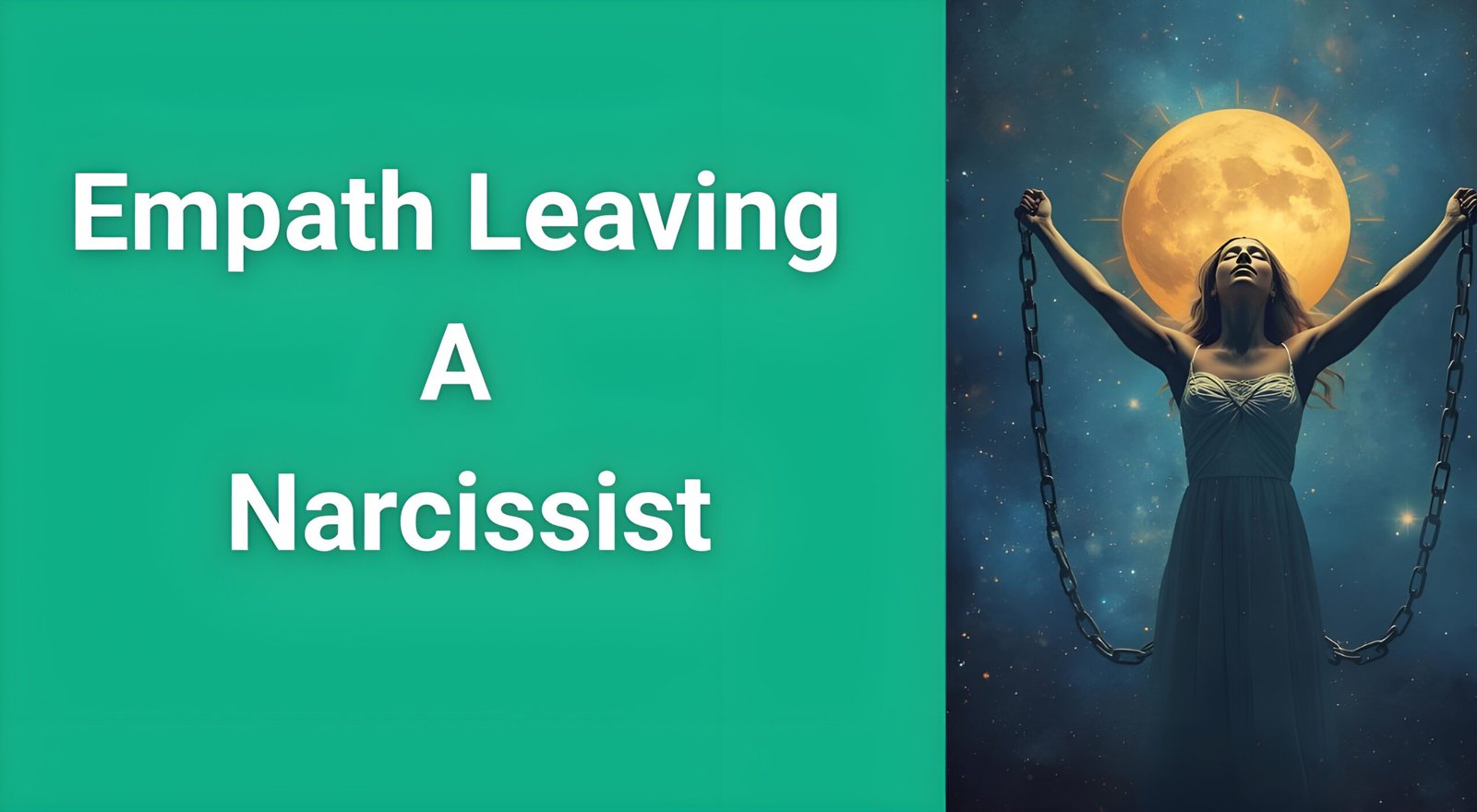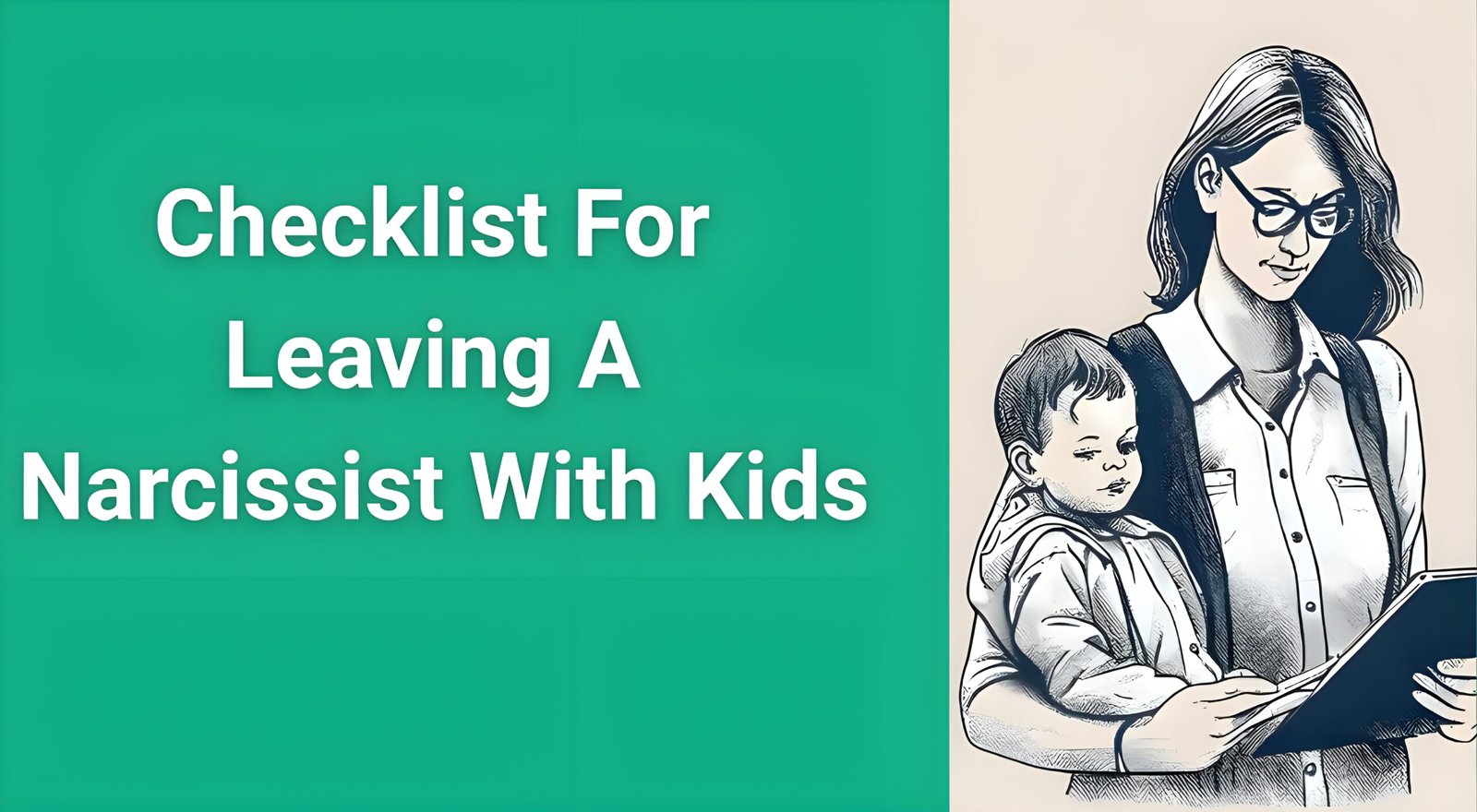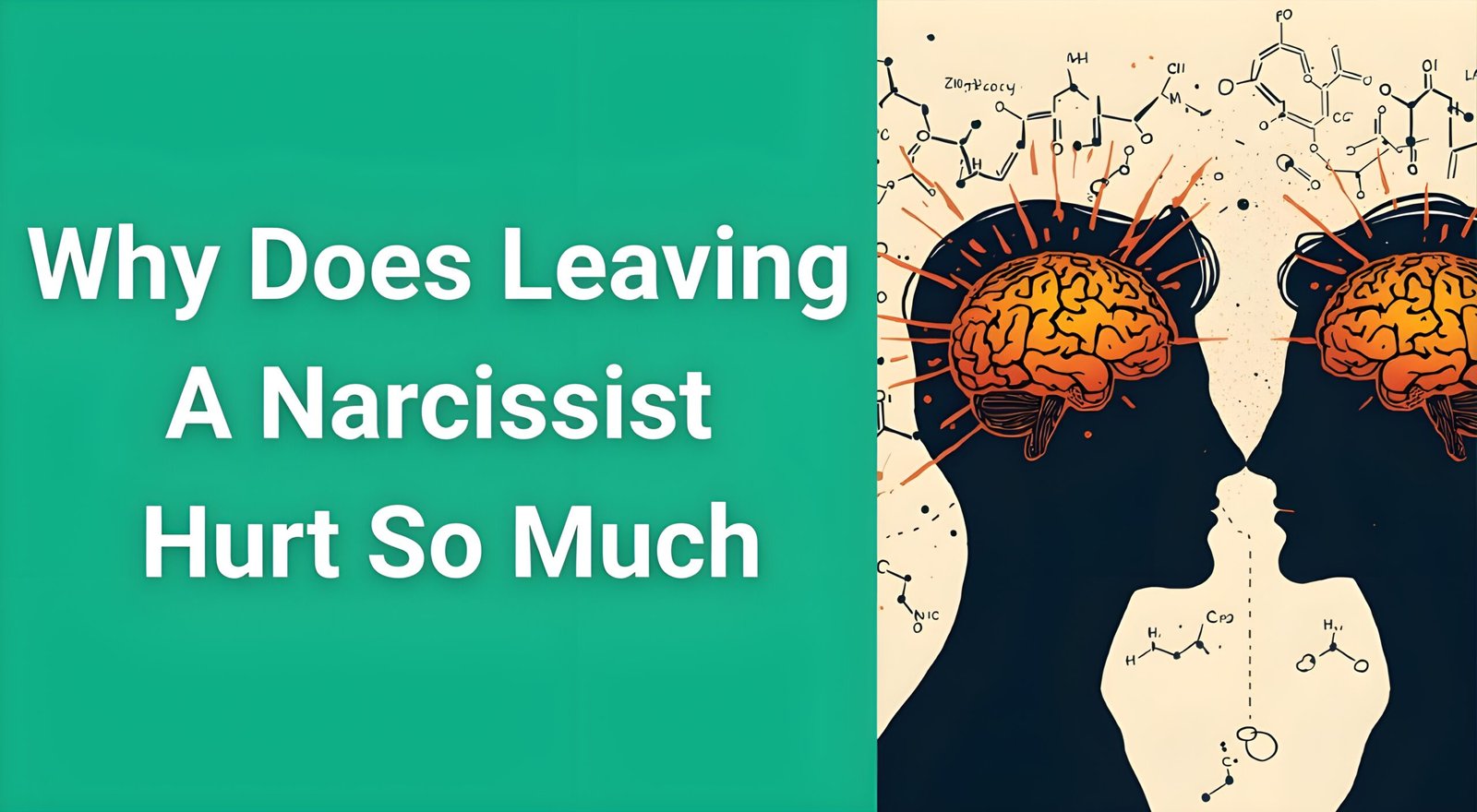When you finally gather the courage to leave a narcissistic relationship, you expect relief. Instead, you might find yourself facing a storm of unexpected reactions—both from them and within yourself. Understanding the effects of leaving a narcissist can prepare you for what’s ahead and validate what you’re experiencing right now.
- The Immediate Emotional Aftermath: What Your Mind and Body Experience
- The Narcissist’s Predictable Response Pattern
- The Hidden Physical and Mental Health Effects
- Social and Relationship Consequences
- Financial and Practical Disruptions
- The Paradox of Freedom: Why Liberation Feels Frightening
- Positive Long-Term Effects: The Light Beyond the Tunnel
- Stages of Recovery: What to Expect on Your Healing Journey
- Practical Strategies for Managing the Effects
- When Professional Help Becomes Essential
- Frequently Asked Questions
- Your Path Forward: From Survival to Thriving
The reality is that narcissists don’t let go easily. Research shows that leaving an abusive relationship is often the most dangerous time for victims, and with narcissists, this danger extends far beyond physical threats into psychological warfare that can last months or even years.
Whether you’re planning your escape or already dealing with the aftermath, this comprehensive guide reveals what mental health professionals know about the complex effects of leaving a narcissist—and most importantly, how to protect and heal yourself through this challenging transition.
The Immediate Emotional Aftermath: What Your Mind and Body Experience
The Trauma Bond Withdrawal
One of the most shocking effects of leaving a narcissist is what feels like addiction withdrawal. This isn’t weakness—it’s neuroscience. The intermittent reinforcement of abuse followed by affection creates powerful biochemical bonds in your brain, similar to substances like cocaine.
You might experience intense cravings to contact them, physical symptoms like nausea and anxiety, and an overwhelming urge to return despite knowing the relationship was harmful. This trauma bond withdrawal can last weeks or months, making you question your decision to leave.
Profound Grief and Confusing Loss
The grief you feel after leaving a narcissist is unlike normal breakup sadness. You’re mourning multiple losses simultaneously: the person you thought they were, the future you imagined, your sense of reality, and often your entire social circle. This complex grief often includes conflicting emotions—relief mixed with longing, freedom alongside fear.
Many survivors describe feeling like they’re grieving someone who’s still alive, which creates cognitive dissonance that traditional breakup advice simply doesn’t address. The person you loved was largely a manufactured persona, yet your brain struggles to separate the manipulation from genuine connection.
Identity Confusion and Self-Doubt
After being gaslighted and controlled, you might find yourself unable to make simple decisions. “Who am I without them?” becomes a haunting question. The effects of leaving a narcissist often include a temporary loss of identity as you realize how much of yourself was suppressed or changed to accommodate their demands.
This identity confusion is actually a sign that you’re beginning to separate your true self from the version they molded you into. While uncomfortable, it’s a necessary part of reclaiming your autonomy.
The Narcissist’s Predictable Response Pattern
The Hoovering Campaign
Named after the vacuum cleaner brand, hoovering describes how narcissists attempt to “suck” you back into the relationship. They cycle through different tactics: love bombing with promises of change, threats, guilt trips, showing up uninvited, or using flying monkeys (friends and family) to pressure you to return.
Understanding this pattern helps you recognize that their sudden interest in changing isn’t genuine—it’s a manipulation tactic activated by their loss of control over you. They may appear more loving than ever before, but this is strategic, not authentic transformation.
The Smear Campaign
One of the most devastating effects of leaving a narcissist is watching them systematically destroy your reputation. They’ll tell anyone who listens that you’re unstable, abusive, or simply “crazy.” This isn’t random cruelty—it serves multiple purposes: isolating you, making you doubt your decision, and preparing others to reject you if you seek support.
The smear campaign often begins before you even leave, as narcissists are skilled at reading the signs of impending abandonment. They position themselves as the victim of your “unpredictable” behavior, setting the stage for their narrative.
Obsessive Monitoring and Stalking
Contrary to their claims of not caring, narcissists often become obsessed with their former victims. They monitor your social media, drive by your home, show up at places you frequent, or create fake accounts to track your activities. This stalking behavior can persist for months or years.
This obsessive monitoring stems from their inability to accept that someone would choose to leave them. In their mind, you’re property that has escaped, and they must either reclaim you or punish you for the audacity of leaving.
The Hidden Physical and Mental Health Effects
Chronic Hypervigilance
Living with a narcissist conditions you to constantly scan for threats. After leaving, this hypervigilance doesn’t simply switch off. You might find yourself jumping at unexpected sounds, feeling anxious in crowds, or experiencing panic attacks triggered by reminders of them.
This heightened state of alertness is your nervous system’s protective response, but it’s exhausting to maintain long-term. Your body remains in fight-or-flight mode even when you’re technically safe, leading to physical symptoms like insomnia, headaches, and digestive issues.
Complex PTSD Symptoms
The effects of leaving a narcissist often include symptoms similar to post-traumatic stress disorder, but with additional complexity. C-PTSD develops from prolonged, repeated trauma and affects your core sense of self, relationships, and worldview.
Symptoms might include emotional flashbacks (suddenly feeling the same hopelessness or terror you felt during the relationship), difficulty regulating emotions, negative self-concept, and problems with interpersonal relationships. Unlike single-incident trauma, narcissistic abuse rewires your brain’s threat detection system.
Autoimmune and Stress-Related Illnesses
The chronic stress of narcissistic abuse doesn’t end when the relationship does. Many survivors develop or experience worsening of autoimmune conditions, chronic pain, frequent infections, or other stress-related health issues. Your body has been in survival mode for so long that your immune system may be compromised.
These physical effects validate that what you experienced was genuinely traumatic, even if others minimize your experience as “just a bad relationship.”
Social and Relationship Consequences
Isolation and Loss of Support Network
Narcissists are skilled at isolating their victims, often turning friends and family against you or creating situations where maintaining other relationships becomes impossible. When you leave, you might discover that your support network has been thoroughly compromised.
Some people may have been completely alienated by the narcissist’s lies, while others might be exhausted by years of drama surrounding your relationship. This social isolation is one of the most challenging effects of leaving a narcissist, as you need support most when it feels least available.
Trust Issues in Future Relationships
Having your reality consistently denied and your emotions manipulated leaves lasting scars on your ability to trust others—and yourself. You might find yourself either avoiding relationships entirely or jumping into unhealthy dynamics because they feel familiar.
The fear of being fooled again can be paralyzing. You may over-analyze every interaction, looking for red flags, or conversely, dismiss genuine red flags because you doubt your own judgment. Rebuilding trust is possible but requires patience and often professional guidance.
Difficulty Setting Boundaries
After years of having your boundaries violated, ignored, or punished, you might struggle to even identify what healthy boundaries look like, let alone enforce them. The effects of leaving a narcissist include needing to relearn basic relationship skills that were systematically undermined.
You might find yourself either becoming overly rigid in new relationships or completely lacking boundaries because you’ve forgotten what normal requests and expectations feel like.
Financial and Practical Disruptions
Economic Abuse Consequences
Many narcissists use money as a control mechanism, leaving you financially dependent or sabotaging your career advancement. When you leave, you might face significant financial hardship, damaged credit, or professional setbacks that make independence challenging.
The effects of leaving a narcissist often include practical consequences like needing to rebuild your financial stability, find new housing, or establish credit in your own name. These material challenges can make the emotional work of healing feel overwhelming.
Legal Harassment
If you share children, property, or business interests with a narcissist, leaving often triggers a campaign of legal harassment. They may file frivolous lawsuits, contest custody arrangements they previously agreed to, or use court proceedings as a way to maintain control and contact.
This legal abuse can drain your resources and energy for years, making it crucial to work with attorneys who understand narcissistic abuse patterns.
The Paradox of Freedom: Why Liberation Feels Frightening
Decision-Making Paralysis
After years of having choices made for you or criticized, the sudden freedom to make your own decisions can feel overwhelming. Simple choices like what to eat for dinner or how to spend your weekend might trigger anxiety because you’ve lost touch with your own preferences and decision-making abilities.
This paralysis is temporary but frustrating. Your brain needs time to reconnect with your authentic desires without the constant criticism and control you’ve become accustomed to.
Fear of the Unknown vs. Familiar Misery
Even though the relationship was harmful, it was predictable. The effects of leaving a narcissist include grappling with uncertainty about the future versus the known quantity of familiar suffering. This fear of the unknown can create ambivalence about your decision to leave.
Remember that growth requires tolerating discomfort. The uncertainty you feel now is the price of freedom, and it’s temporary compared to the lifetime of diminishment that staying would guarantee.
Positive Long-Term Effects: The Light Beyond the Tunnel
Rediscovering Your Authentic Self
While the immediate effects of leaving a narcissist are challenging, the long-term outcomes can be profoundly positive. As you heal from the trauma bond and gaslighting, you’ll begin to rediscover preferences, opinions, and aspects of your personality that were suppressed during the relationship.
Many survivors describe feeling like they’re meeting themselves for the first time in years. This process of self-discovery, while initially disorienting, ultimately leads to a stronger sense of identity than you may have ever experienced.
Developing Genuine Self-Compassion
Surviving narcissistic abuse and having the courage to leave often catalyzes deep personal growth. You develop genuine self-compassion as you understand that staying wasn’t weakness—it was survival. Leaving required tremendous strength that you may not have known you possessed.
This self-compassion becomes the foundation for healthier relationships and better life choices going forward.
Enhanced Intuition and Red-Flag Recognition
Once you heal from the gaslighting, many survivors develop remarkably sharp intuition. Having had your perceptions systematically denied, you become highly attuned to subtle signs of manipulation or dishonesty in others.
This enhanced awareness, while born from trauma, becomes a valuable life skill that protects you from future harmful relationships and helps you recognize genuinely trustworthy people.
Stages of Recovery: What to Expect on Your Healing Journey
Stage 1: Crisis and Stabilization (Months 1-3)
The initial effects of leaving a narcissist focus on basic survival and safety. This stage involves managing withdrawal symptoms, establishing no-contact boundaries, and addressing immediate practical needs like housing and financial security.
Expect intense emotions, physical symptoms, and strong urges to return to the relationship. This is normal and temporary. Focus on basic self-care, safety planning, and seeking professional support.
Stage 2: Processing and Understanding (Months 3-12)
As the initial crisis stabilizes, you begin processing what happened to you. This stage involves education about narcissistic abuse, understanding trauma bonds, and starting to identify the specific ways the relationship affected you.
You might feel angry during this stage—at them, at yourself, at others who didn’t help. This anger is healthy and necessary for healing, though it can feel overwhelming.
Stage 3: Rebuilding and Integration (Year 1-2)
The focus shifts to actively rebuilding your life, identity, and relationships. You develop new coping strategies, practice setting boundaries, and begin forming healthier connections with others.
This stage involves grief work for the person you thought they were and the life you thought you’d have together. It’s also when many survivors seek trauma-informed therapy to address deeper healing.
Stage 4: Growth and Transformation (Year 2+)
While healing continues throughout life, this stage represents emerging stronger and wiser from the experience. You develop post-traumatic growth, meaning you’re not just returning to your pre-abuse state but becoming more resilient than before.
Many survivors use their experience to help others, pursue careers in helping professions, or simply live more authentically than they ever have before.
Practical Strategies for Managing the Effects
Building Your Support Network
Since narcissistic abuse often involves isolation, rebuilding connections is crucial. Join survivor support groups, either locally or online. Consider working with a therapist who specializes in narcissistic abuse—general therapy approaches may not address the specific effects of leaving a narcissist.
If you’re still planning your departure and wondering whether you’re truly dealing with abuse, specialized resources can provide clarity. Professional analysis of your specific situation can validate your experiences and provide personalized guidance for your circumstances.
Implementing Trauma-Informed Self-Care
Traditional self-care advice often falls short for narcissistic abuse survivors. You need approaches that specifically address trauma bonds and hypervigilance. This might include somatic therapies, EMDR, or specialized workbooks designed for trauma bond recovery.
For many survivors, structured programs that address the neurological aspects of trauma bonding prove more effective than willpower-based approaches to maintaining no contact.
Legal and Safety Planning
If you’re still in the planning stages, consult with attorneys familiar with high-conflict personalities. Document abuse patterns, secure important documents, and develop safety plans for both during and after leaving.
Consider whether you need restraining orders, security measures, or specialized custody arrangements if children are involved.
When Professional Help Becomes Essential
Red Flags That Require Immediate Intervention
While many effects of leaving a narcissist are normal trauma responses, certain symptoms require professional intervention: suicidal thoughts, complete inability to function, severe dissociation, or substance abuse as coping mechanisms.
If you’re experiencing thoughts of self-harm, contact the National Suicide Prevention Lifeline at 988 immediately.
Finding the Right Therapeutic Support
Not all therapists understand narcissistic abuse. Look for professionals trained in trauma-informed care, particularly those familiar with complex PTSD, attachment trauma, or domestic abuse. They should understand concepts like trauma bonding, gaslighting, and the specific challenges of leaving high-conflict relationships.
Avoid couples counseling if you’re still with a narcissist—it can actually increase danger and provide them with more ammunition for manipulation.
Frequently Asked Questions
Q: How long do the effects of leaving a narcissist typically last?
A: The acute phase usually lasts 3-6 months, with significant improvement by the one-year mark. However, healing is individual and can take 2-3 years for complex cases. The trauma bond withdrawal typically resolves within the first few months with proper support.
Q: Is it normal to miss them even though they were abusive?
A: Absolutely normal. You’re not missing the abuse—you’re missing the person they pretended to be and the good moments that kept you hoping. This is part of trauma bonding and doesn’t mean you should return.
Q: Why do I feel worse after leaving than I did while with them?
A: During the relationship, you were in survival mode, suppressing your needs and emotions to cope. After leaving, all those suppressed feelings surface at once. Additionally, you’re withdrawing from the biochemical addiction created by the trauma bond.
Q: Will they ever stop trying to contact me?
A: Most narcissists eventually move on to new sources of supply, but this can take months or years. Some maintain sporadic contact attempts for decades, especially if you share children. Consistent no-contact is your best protection.
Q: How do I know if I’m ready to date again?
A: You’re ready when you can be alone without feeling desperate for company, when you trust your own perceptions, and when you can identify and enforce boundaries. Most experts recommend at least a year of focused healing before pursuing new relationships.
Q: What if they seem to have changed and want me back?
A: Narcissistic personality patterns are deeply ingrained and rarely change, despite temporary modifications in behavior. What you’re likely seeing is hoovering—strategic changes designed to regain control. Genuine change requires years of consistent therapy and self-work that most narcissists are unwilling to undertake.
Your Path Forward: From Survival to Thriving
Understanding the effects of leaving a narcissist helps normalize your experience and prepares you for the journey ahead. While the immediate aftermath feels overwhelming, thousands of survivors have walked this path before you and emerged stronger, wiser, and more authentic than ever.
The pain you’re experiencing now is the price of your freedom—and it’s temporary. The person who controlled and diminished you wants you to believe that life without them is impossible, but countless survivors prove otherwise every day.
Your courage to leave, despite these daunting effects, represents one of the strongest acts of self-love and self-preservation you could make. Trust that your future self will thank you for choosing the difficulty of healing over the certainty of continued abuse.
Remember that leaving a narcissist isn’t just about ending a relationship—it’s about reclaiming your life, your voice, and your right to be treated with basic human dignity. The effects of leaving a narcissist may challenge you, but they also offer an opportunity for profound personal transformation and authentic living.
You survived the abuse. You will survive the aftermath. And eventually, you will thrive in ways you never thought possible while under their control.






